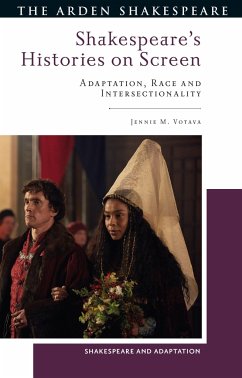"Bringing together two growing bodies of work - early modern race scholarship and adaptation theory - this volume articulates the centrality of race and its intersections with other identity categories in the contemporary adapted Shakespearean history play. By considering questions of race, ethnicity, gender, sexuality, disability and class, it investigates the English histories' ongoing and shifting contributions to ideas about nationhood in both the United Kingdom and the United States, where Shakespeare's persistent cultural capital plays an increasingly ambivalent role. The book begins by examining two 21st-century adaptations of the Henriad that intentionally engage contemporary identity politics through cross-racial casting - the BBC miniseries, The Hollow Crown (2012, 2016) and Lennix, Quinn, and Thompson's all-Black Henry IV conflation, the film H4 (2012). In these works, adaptation itself becomes a means of interrogating Shakespeare's relationship to race as well as to other axes of power and difference. From these, the author turns to reassess the past and present cultural implications of history adaptations from the Shakespearean box office boom of the 1990s, when casting actors of colour in cinematic Shakespeare first became a conscious concern alongside more overt engagements with class, queer sexuality and disability. The conclusion explores how digital culture's responses to non-traditional Shakespearean casting practices are shaping constructions of race and its intersections on both sides of the Atlantic"--
Hinweis: Dieser Artikel kann nur an eine deutsche Lieferadresse ausgeliefert werden.
Hinweis: Dieser Artikel kann nur an eine deutsche Lieferadresse ausgeliefert werden.








